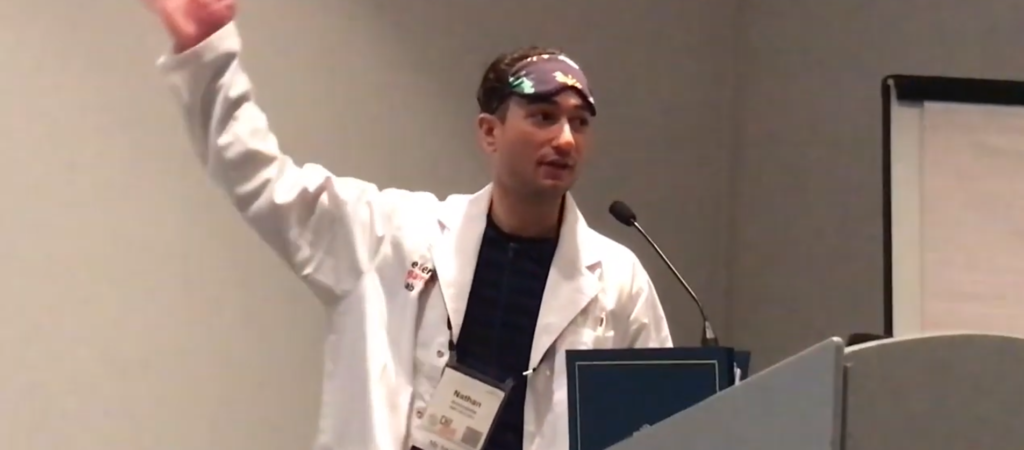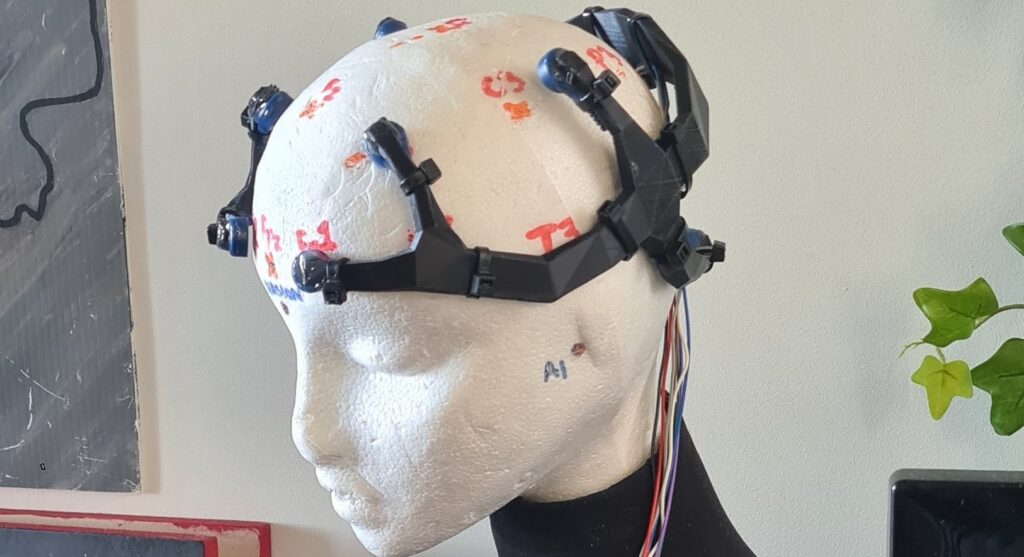About

Select Publications
Semertzidis, N., (2022). Brain-Computer Integration. A Thesis Submitted for the Degree of Doctor of Philosophy at Monash University in 2021 School of Information Technology.
Semertzidis, N., Scary, M., Andres, J., Dwivedi, B., Kulwe, Y. C., Zambetta, F., & Mueller, F. F. (2020, April). Neo-Noumena: Augmenting Emotion Communication. In Proceedings of the 2020 CHI conference on human factors in computing systems (pp. 1-13).
Semertzidis, N., Sargeant, B., Dwyer, J., Mueller, F. F., & Zambetta, F. (2019, May). Towards understanding the design of positive pre-sleep through a neurofeedback artistic experience. In Proceedings of the 2019 CHI Conference on Human Factors in Computing Systems (pp. 1-14).
Mueller, F. F., Semertzidis, N., Andres, J., Weigel, M., Nanayakkara, S., Patibanda, R., Li, Z., … & Byrne, R. (2022). Human–Computer Integration: Towards Integrating the Human Body with the Computational Machine. Foundations and Trends® in Human-Computer Interaction, 16(1), 1-64.
Dickinson, R., Semertzidis, N., & Mueller, F. F. (2022, April). Machine In The Middle: Exploring Dark Patterns of Emotional Human-Computer Integration Through Media Art. In CHI Conference on Human Factors in Computing Systems Extended Abstracts (pp. 1-7).
Mueller, F. F., Lopes, P., Andres, J., Byrne, R., Semertzidis, N., Li, Z., … & Greuter, S. (2021). Towards understanding the design of bodily integration. International journal of human computer studies, 152, 1-25.
Andres, J., Semertzidis, N., Li, Z., Wang, Y., & Mueller, F. F. (2022). Integrated Exertion–Understanding the Design of Human–Computer Integration in an Exertion Context. ACM Transactions on Computer-Human Interaction.
Andres, J., Schraefel, M. C., Semertzidis, N., Dwivedi, B., Kulwe, Y. C., von Kaenel, J., & Mueller, F. F. (2020, April). Introducing Peripheral Awareness as a Neurological State for Human-Computer Integration. In Proceedings of the 2020 CHI Conference on Human Factors in Computing Systems (pp. 1-13).
Fang, X., Semertzidis, N., Scary, M., Wang, X., Andres, J., Zambetta, F., & Mueller, F. F. (2021, October). Telepathic Play: Towards Playful Experiences Based on Brain-to-brain Interfacing. In Extended Abstracts of the 2021 Annual Symposium on Computer-Human Interaction in Play (pp. 268-273).
Nathan is a researcher and developer whose goal is to investigate and engineer intelligent neural interface systems which integrate with the brain to foster human potential. He is currently a Research Fellow at the Exertion Games Lab, Monash University, and a game developer at Cosmologic Studios.
Nathan’s PhD was recently conferred on the 31st of Augusts, 2022. Completed at the Exertion Games Lab, Monash University, Australia. through his PhD Nathan investigated extending human cognition and ability through brain-computer interfaces. His work focuses on brain-computer interfaces, neural modulation, inter-brain neural synchrony, artificial intelligence, human-computer integration, and user experience; and how these can be used to investigate and inform novel and engaging experiences in sleep, communication, augmenting cognition, and more recently, fostering interpersonal human connection on a neural level.
He has published at various top tier conferences and journals such as CHI, IJHCS, TOCHI, and Foundations and Trends in Human-Computer Interaction, and is the recipient of an Honorable Mention for Best Paper Award at CHI 2022. His work has drawn international media coverage from the likes of Openbci, The ABC, The Age, Channel 7, Channel 9, Tripple R, Canberra Times, Zdnet, Engadget, Medical Xpress and Neuroscience News.
In his current role as a Research Fellow at Exertion Games Lab, Nathan designs and develops novel closed-loop physiological human-computer integration systems from ideas to working prototypes. His research involves the study and evaluation of his prototype systems by deploying them to users longitudinally, and subsequentially investigating user Interactions and experiences with the systems through the employ of psychophysical and phenomenological research methods. He also contributes his software and engineering skills across projects in the lab, specifically in the development of biosensing and actuating devices for human-computer bodily integrations. Along the way he has also presented his research globally, collaborated with other researchers, industry professionals, and artists, has co-supervised interns, research assistants, honors students, a master’s student, and is currently co-supervising a PhD student. Nathan has organised and co-originated workshops and special interest groups of international impact, and was part of the organising committee of the 2020 ACM Conference on Human Factors in Computing Systems (CHI).
Nathan is an alumnus of the Flory Institute of Neuroscience, where he worked as a research assistant and completed his honours degree in partnership with RMIT University. His research Involved studying the neural mechanisms of absence epilepsy using neural implants, and during this period became Intimately experienced with signal processing and neuroimaging techniques and ultimately fostered an undying passion for neuroprosthetics and brain-computer Interfaces. He still maintains contact with the psychology department at RMIT University, at which he is currently enlisted as a sessional casual academic, teaching research methods and statistical analysis, psychopathology, and social psychology.
Nathan is also an active figure in the game development industry, being a game developer outside his academic hours, and a co-founder of the independent game studio “Cosmologic Studios“. At Comsologic Studios he is currently involved in the development of tools to help designers and game developers implement biosensing capabilities in their games, while also currently working on two games: A story driven horror RPG, and a Biopunk colony sim.
Learn more about my
